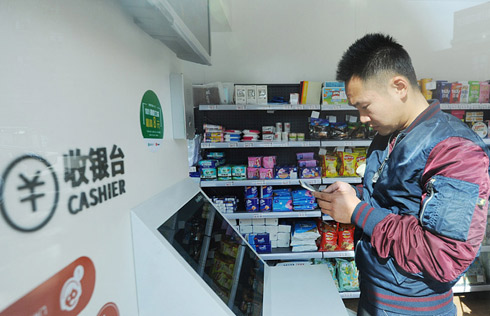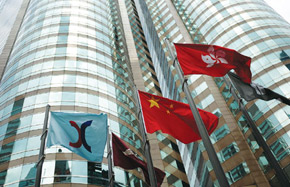Stellar Q3 makes Alibaba upbeat before Singles Day
An upbeat Alibaba Group Holding Ltd will hold its famed annual Singles Day online shopping festival on Nov 11, having posted its fastest quarterly (July-September) sales growth since its record initial public offering in 2014.
Sales surged by 61 percent year-on-year, a historical high, to $8.29 billion, yielding a profit of $2.62 billion, more than double that in the same period last year.
Promptly, the $473 billion e-commerce behemoth, which is based in Hangzhou, Zhejiang province, raised its outlook for full-year growth, saying it expects sales to grow by 49-53 percent, up from the previous forecast of 45-49 percent.
Analysts attributed the stellar third-quarter show to strong Chinese consumer spending.
Soon after the results, Alicia Yap, an analyst with Citigroup Inc, raised her price target for Alibaba's stock to $218, up from her previous threshold of $184.80, and 18 percent higher than Thursday's closing level on the New York Stock Exchange.
"We are positive on Alibaba given that it has the leading online commerce ecosystem in China, its monetization rate has upside potential, and synergies can be harvested across marketplaces, leveraging big data analysis and Aliyun (cloud) infrastructure," she said.
Alibaba's core e-commerce segment, which comprises a variety of retail and wholesale sites, further cemented its dominance by registering a 63 percent growth in sales as half-a-billion Chinese consumers purchased every conceivable product from its online marketplaces.
Efforts to compete with JD.com Inc, its major rival in the business-to-customer or B2C space, have borne early fruit. Alibaba's Tmall claimed a 59 percent share of China's 985.4 billion yuan ($149.3 billion) B2C retail market in the September quarter, widening its gap with JD.com's 26.9 percent, according to consultancy Analysys.
In driving its New Retail strategy that aims to make online and offline channels complement each other, Alibaba bought into department stores. It set up "smart" fresh food chain Hema, plowed tens of billions of dollars into logistics in far-flung areas and enlisted half-a-million mom-and-pop stores for its operations.
In an analyst call, Maggie Wu, Alibaba's chief financial officer, said revenue from New Retail-mainly Hema and Intime Retail for now-more than quintupled in the past quarter.
"I would say this will totally change today's department store model in China and we are very confident that we will make this happen," said CEO Daniel Zhang.
Typically, Alibaba uses the annual Nov 11 shopping gala, which has been setting a world record every year for largest single-day sales, to test its new business.
This year would be no exception, said Neil Wang, president of consultancy Frost and Sullivan Greater China.
For instance, it will collaborate with shopping malls in 12 cities to set up so-called Popup Stores during the extravaganza. At such stores, consumers can experience product trials using augmented reality gadgets, and pick up items they bought online.




















